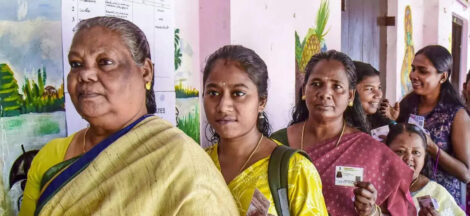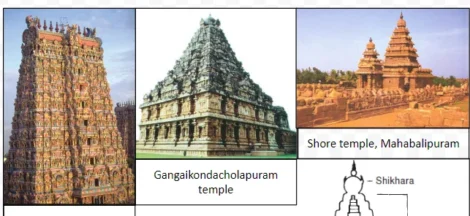By B. Sivaraman
Defying Essential Service Maintenance Act (ESMA) by workers has become as common today as the routine acts of invoking ESMA by governments of all hues. For instance, speculation was rife among the bank employees in October end that the government might invoke ESMA against their proposed strike in December 2018 when the Finance Ministry proclaimed banking to be a “public service”, a precondition for invoking ESMA. The union leadership, however, clarified that such proclamations would not deter them from going ahead with strike action as their strikes in May and August 2018 were conducted despite such a proclamation being in force. In other words, they sent a clear message that they would defy ESMA even if that were to be clamped down.
Bank employees were not alone in defying ESMA. States have their own versions of ESMA. Despite arrests and summary dismissal of 200 workers —f or which there is no provision even in ESMA — in October, the Haryana transport workers defied ESMA to launch their strike on 16 October and, on 29 and 30 October, over 2 lakh Haryana state government employees went on a solidarity strike in support of state public transport workers’ strike against privatisation despite facing a risk of one year jail under ESMA for supporting a strike banned under it.
The list of valiant defiance of ESMA is quite long — Maharashtra government employees defied ESMA to go on a strike on 7 August 2018 demanding implementation of the Seventh Pay Commission recommendations; ambulance service workers in Himachal Pradesh in June 2018, junior doctors in Madhya Pradesh in July 2018 and the Rajasthan government doctors in December 2017, the Lekhpals (village revenue record clerks) of UP in July 2018 and all the UP government employees, who launched a 3-day protest strike against the new contributory pension scheme on 25 October 2018 — all defied ESMA to go on strike.
Unfortunately in India, right to strike is not a fundamental right but a statutory right only. Had it been a fundamental right, it would have been difficult for the government to curb it by enacting some other legislation. But even as a statutory right derived from the Industrial Disputes Act 1947, it is being curtailed by the Modi government’s proposed Labour Code on Industrial Relations Bill 2015. For instance, earlier giving a strike notice in advance was mandatory only in public utilities under the ID Act but under the proposed Code it has been extended to all ‘industrial establishments’. The ID Act says that there should be no strike when the conciliation process is still on. But the most ridiculous aspect of the draft IR Code is that it says that conciliation is presumed to commence from the day the strike notice is sent. In plain words, the unions are supposed to send a strike notice in all industries only to disable themselves from going on strike! This makes a legal strike virtually impossible in any industry. Under this Modi government, even a draft legislation can get as ridiculous as this!
Further, violation of any provision of this Code would lead to de-registration of the union itself.
However, on 8 October, the Karnataka HC stayed a state government notification of Karnataka ESMA to cover metro workers as the petitioner contended that a state Act cannot be invoked to ban strike in central government establishments as Namma Metro comes under the Centre. As law and order is a state subject, a really anomalous situation has been created on using ESMA to crackdown on strikes by employees coming under the central sector.
The question of whether the right to strike is a logical extension of the right to association as provided by the Constitution in Article 19 (1) (c) and integral part of the collective bargaining is yet to be clearly settled in labour jurisprudence in the country. The ILO conventions like the Convention 87 on Freedom of Association and Protection of the Right to Organize, Convention 98 on the Right to Organize and Collective Bargaining as well as the Collective Bargaining Convention, 1981 make it amply clear that the right to strike was an integral part of the right to collective bargaining. But India was not a signatory to any of these conventions. However, India was a party to the International Covenant on Economic, Social and Cultural Rights (ICESCR), a multilateral treaty adopted by the United Nations General Assembly on 16 December 1966. Article 8 (1) (d) of ICESCR provides that the “States parties to the Covenant shall undertake to ensure the right to strike”. But the very enactment of ESMA immediately in 1968 went against that commitment.
Not only ESMA was a poorly drafted law with virtually no safeguards in the statute itself against misuse, even the labour jurisprudence has been heavily loaded against the workers, with conflicting judgments. In Gujarat Steel Tubes vs. Mazdoor Sabha case as far back as 1980, a 3-judge bench of the SC headed by Justice Bhagwati opined that right to strike is integral of collective bargaining. Again in the BR Singh vs. Union of India case in 1990, Justice Ahmadi noted that, “The [collective] bargaining strength would be considerably reduced if it is not permitted to demonstrate by adopting agitational methods such as ‘work to rule’, ‘go-slow’, ‘absenteeism’, ‘sit-down strike’, and ‘strike’”. But, in 2003, in the T.K. Rangarajan vs. Government of Tamil Nadu and Others case, a division bench of the SC comprising Justices M.B. Shah and A.R. Lakshmanan ruled that the government employees have no right to strike. But, strangely enough, though a 2-judge division bench cannot overrule a three-judge bench decision of 1980, the Rangarajan case verdict now prevails in all subsequent cases. In fact, ID Act itself makes a distinction between legal strike and illegal strike and how can there be a category of legal strikes without prevalence of right to strike in some measure? Unless labour movement takes up the advocacy for pro-people judicial reforms as a key agenda, such lopsided jurisprudence would continue to hinder the right to strike. (IPA Service)
The post Workers Defy Curbs On Right To Strike appeared first on Newspack by India Press Agency.



